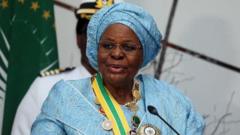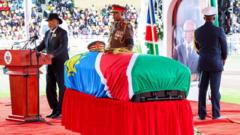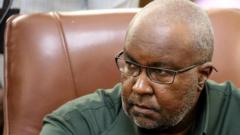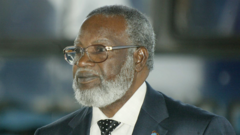However, challenges loom over the practicality of this ambitious scheme. Nandi-Ndaitwah indicated that the implementation would be gradual and highlighted that families and students would still need to cover living expenses, while no significant additional funding will be made available. This has raised concerns among student organizations and economic experts who argue that the model may not expand access effectively, with fears it could limit eligibility to low-income groups only, much like the restrictions seen in South Africa's similar initiatives. While some groups welcomed the move, others criticized it as lacking clarity and operational viability.
Critics, including the Affirmative Repositioning Student Command (ARSC), have voiced skepticism about the government's ability to sustain such a promise without clear financial backing, questioning the broader implications for access to tertiary education in the country. As Namibia embarks on this journey, many will be watching closely to see how it develops against the backdrop of regional educational challenges.
Amid the promise of "Fees Have Fallen," the call for further clarity and a concrete roadmap for implementation remains paramount as students and institutions alike prepare for potential changes ahead.
Critics, including the Affirmative Repositioning Student Command (ARSC), have voiced skepticism about the government's ability to sustain such a promise without clear financial backing, questioning the broader implications for access to tertiary education in the country. As Namibia embarks on this journey, many will be watching closely to see how it develops against the backdrop of regional educational challenges.
Amid the promise of "Fees Have Fallen," the call for further clarity and a concrete roadmap for implementation remains paramount as students and institutions alike prepare for potential changes ahead.



















